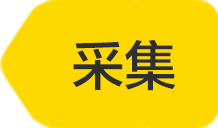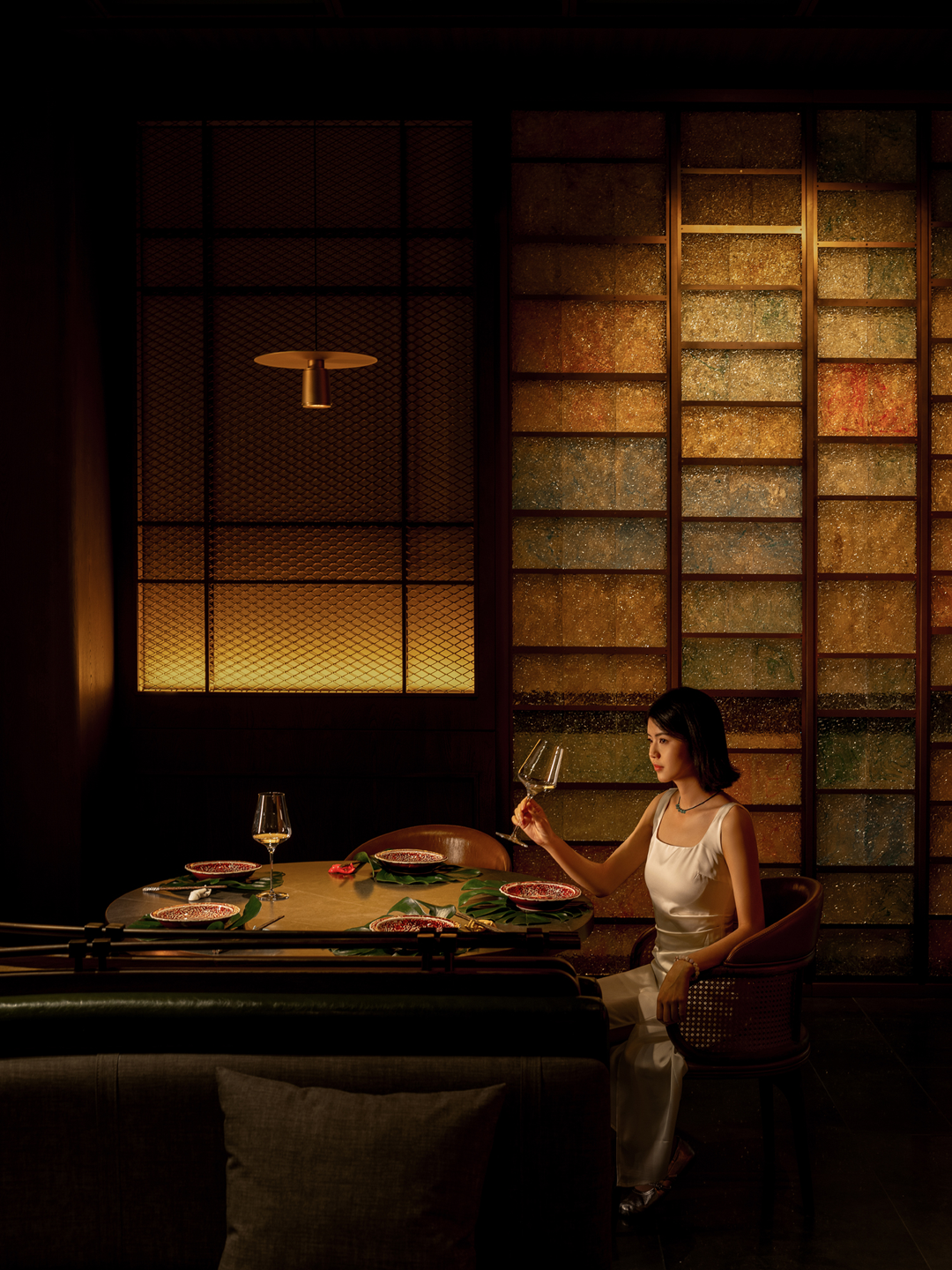The Shapes of Water Sabine Marcelis Ethereal Fountains for FENDI
2019-03-14 14:32
Water may not be the first thing that comes to mind when you think about Italian luxury house FENDI, yet water was the theme of the Maison’s installation at this year’s Design Miami that took place in early December. Celebrating the tenth year anniversary of FENDI’s participation at the fair, Rotterdam-based designer Sabine Marcelis has created ten unique fountains made out of cast resin, inspired by ten of the brand’s most iconic symbols and motifs. From the emblematic FF logo and the timeless design of the Peekaboo bag, to timeless fur patterns, Marcelis’ ethereal fountains, collectively titled 'The Shapes of Water', embody FENDI’s historical, creative and aesthetic legacy while their innovative construction exemplifies the brand’s virtuosity when it comes to the processing of materials. The Maison’s intimate relationship with water, and in particular the historical fountains of its hometown, Rome, took roots in 1977 when it commissioned writer and director Jacques de Bascher to make a short film to showcase its first ready-to-wear collection. Titled Histoire d’Eau, the film follows Suzy Dyson, a young American tourist visiting Rome, as she explores the city and its fountains, bedecked in the Maison’s creations. The film cemented the Maison’s interest in Rome’s fountains which in 2013 begot the Fendi for Fountains initiative that aims to preserve and restore the city’s emblematic fountains. Three years later, to celebrate its 90 years anniversary, FENDI’s runway show, Legends and Fairy Tales, was staged in front of the iconic Trevi Fountain.
当你想到意大利豪宅芬迪(Fendi)时,水可能不是你想到的第一件事。然而,水是今年12月初在迈阿密设计展(Design迈阿密)上安装的梅森号(Maison)的主题。在庆祝芬迪参加博览会十周年之际,鹿特丹设计师萨宾·马塞利斯(SabineMarcelis)用铸造树脂制作了十款独特的喷泉,灵感来自该品牌最具标志性的符号和图案。从具有象征意义的FF标志和皮卡布包的永恒设计,到永恒的毛皮图案,马塞利斯的虚幻喷泉,统称为“水的形状”,体现了芬迪的历史、创意和美学遗产,而他们的创新建筑则体现了该品牌在材料加工方面的精湛技艺。梅森与水的亲密关系,特别是其家乡罗马的历史喷泉,于1977年扎根,当时它委托作家和导演雅克·德·巴舍尔制作一部短片,展示其第一批成衣系列。这部名为“史提奥”的电影讲述了苏西·戴森(Suzy Dyson)的故事,她是一位访问罗马的年轻美国游客,她在探索这座城市及其喷泉时,在梅森的创作中大显身手。这部电影巩固了梅森一家对罗马喷泉的兴趣。2013年,罗马喷泉产生了芬迪喷泉计划,旨在保护和修复罗马标志性的喷泉。三年后,为了庆祝它成立90周年,芬迪的时装秀“传说与童话”在标志性的Trevi喷泉前上演。
Palazzo della Civiltà Italiana (detail). Photo by Carl Kleiner, courtesy of FENDI.
PalazzoDellaCiviltinitialana(详图)。卡尔·克莱恩的照片,芬迪的礼遇。
Sabine Marcellis portrait. Photo by Carl Kleiner, courtesy of FENDI.
SabineMarcellis肖像画。卡尔·克莱恩的照片,芬迪的礼遇。
Palazzo della Civiltà Italiana. Photo by Carl Kleiner, courtesy of FENDI.
Video of -amp;#039;The Shapes of Water-amp;#039;: Sabine Marcelis-amp;#039; Ethereal Fountains for FENDI 'The Shapes of Water': Sabine Marcelis' Ethereal Fountains for FENDI
Photo © FENDI, courtesy of Design Miami.
Photo © FENDI, courtesy of Design Miami.
Although quite different in shape and function, the ten fountains that Marcelis has designed share an ethereal transparency, a luxurious sensibility, and a colour palette of warm, sensuous tones that turn from golden yellow to bold orange to deep red, reminiscent of Roman skies during sunset in the summer. In Design Miami, these magical qualities were enhanced by the setting: an all-white, luminous space wherein the coloured transparencies and milky translucencies of the polished, cast resin blocks seemed to be illuminated from within. Displayed on top of travertine plinths, the futuristic aesthetic, evanescent lightness and polished sheen of Marcelis’ cast resin artworks were poetically juxtaposed with the classical connotations, hefty splendour and rich texture of the travertine stone. The choice of travertine was not just for aesthetic purposes though, as it also references FENDI’s Roman headquarters, the 1930s Palazzo della Civiltà Italiana, an emblematic neoclassical monument the company took over in 2015. The Palazzo was also the inspiration for one of the project’s fountains, whose matrix of arches and beige colour closely resembles the building’s facades.
马塞利斯设计的十座喷泉虽然在外形和功能上大相径庭,但都有一种空灵的透明度,一种豪华的感觉,以及一种温暖、性感的色调,从金黄色变成深红,让人想起夏天日落时的罗马天空。在“迈阿密设计”中,这些神奇的品质被背景增强了:一个全白色的发光空间,在这个空间里,抛光的、铸造的树脂块的彩色透明和乳白色半透明似乎是从内部被照亮的。马塞利斯铸造树脂艺术作品的未来派美学、消失光和抛光光泽,在钙华纹饰上,与钙华石的古典内涵、富丽堂皇的辉煌和丰富的质地,诗意地并置在一起。选择钙华并不仅仅是为了美学目的,因为它还提到了芬迪的罗马总部-上世纪30年代的意大利文明宫(Palazzo Della Intelligence),这是该公司2015年接管的一座具有象征意义的新古典主义纪念碑。宫殿也是该项目的一个喷泉的灵感来源,它由拱形和米黄色组成的矩阵与建筑物的正面非常相似。
FENDI FF Logo N.1 (detail). Photo by Carl Kleiner, courtesy of FENDI.
FendiFF徽标N1.1(详细信息)。卡尔·克莱恩的照片,芬迪的礼遇。
FENDI FF Logo N.1. Photo by Carl Kleiner, courtesy of FENDI.
Fendi FF Logo N.1照片由卡尔凯鹏华盈提供,芬迪。
FENDI FF Logo N.2. Photo by Carl Kleiner, courtesy of FENDI.
Fendi FF Logo N.2照片由卡尔凯鹏华盈提供,芬迪。
FENDI FF Logo N.2 (detail). Photo by Carl Kleiner, courtesy of FENDI.
Fendi FF Logo N.2(细节)照片由卡尔凯鹏华盈提供,芬迪。
Any exhibition about FENDI’s legacy would of course be incomplete without a tribute to its iconic FF logo, and indeed Marcelis has designed not one but two fountains that playfully commemorate its brilliant simplicity. Conceived by Karl Lagerfeld in 1965 when he joined the company as an abbreviation for Fun Fur, it was initially used in travel trunk interiors. In a vertical version, the logo is carved out of a solid resin cube and accentuated by the coloured water that gently bubbles through with the help of an air pump hidden inside the travertine base—a clever design solution that Marcelis has applied to all fountains that require water reservoirs or pumps—while in another version, the logo hovers horizontally inside a transparent cube that cradles a swallow pool of water on top. Karl Lagerfeld, whose is said to have sketched the FF logo in 5 seconds, is further referenced in Astuccio, a fountain that takes its name from one of the most famous and acclaimed fur patterns which Lagerfeld designed in the 1970s. Characterized by its bold geometry of vertical and diagonal lines, Marcelis has recreated the pattern with two stripped resin panels, a transparent one standing vertically and an orange one slightly inclined, whose hollowed out stripes are accentuated by air bubbles travelling upwards.
任何关于芬迪遗产的展览,如果没有对其标志性的FF标志的赞扬,当然是不完整的。事实上,马塞利斯设计了不只是一个喷泉,而是两个喷泉,以纪念其辉煌的简单。1965年,卡尔·拉格菲尔德(KarlLagerfeld)加入这家公司,当时他是“乐趣毛皮”的缩写,最初它被用于旅行后备箱内部。在垂直版中,这个标志是由一个固体树脂立方体雕刻而成的,颜色的水在石灰华底座内隐藏的气泵的帮助下轻轻地泡泡-这是马塞利斯应用于所有需要蓄水池或水泵的喷泉的巧妙设计解决方案-而在另一个版本中则是如此。这个标志水平地悬浮在一个透明的立方体内,这个立方体上面有一个燕子池。卡尔·拉格菲尔德(Karl Lagerfeld)据说在5秒内画出了FF的标志,他在Astuccio中被进一步引用。Astuccio是一座喷泉,取名于拉格菲尔德(Lagerfeld)在20世纪70年代设计的最著名、最受欢迎的皮Marcelis以其大胆的垂直和对角线几何图形为特征,用两个剥离的树脂面板重新创建了这个图案,一个透明的垂直站立,一个橙色的稍微倾斜,其空洞化的条纹是突出的空气气泡向上移动。
Astuccio (detail). Photo by Carl Kleiner, courtesy of FENDI.
Astuccio(细节)照片由卡尔凯鹏华盈提供,芬迪。
Astuccio. Photo by Carl Kleiner, courtesy of FENDI.
Tegole (detail). Photo by Carl Kleiner, courtesy of FENDI.
Tegole. Photo by Carl Kleiner, courtesy of FENDI.
Intarsi (detail). Photo by Carl Kleiner, courtesy of FENDI.
INARSI(详图)。卡尔·克莱恩的照片,芬迪的礼遇。
Intarsi. Photo by Carl Kleiner, courtesy of FENDI.
Besides Astuccio, the Maison’s experimentation and creativity, when it comes to fur and leather, are embodied by Labirinto, one of FENDI’s most classical fur patterns, Tegole, another classical design whose fish-scale pattern also alludes to Rome’s roof shingles, and Intarsi, which refers to the highly-skilled craftsmanship involved in fur tailoring. Consisting of three caramel coloured stacked blocks, Intarsi features a complex path along which the water flows down from the top, reflecting the intricate process of creating multifaceted fur or leather patterns. The company’s outstanding craftsmanship is also celebrated in Selleria, a fountain that takes its name from FENDI’s iconic Selleria handbag collection which is based on sewing techniques used by the ancient Romans to make saddles. The only fountain not espousing the series’ cubic geometry and polished finish is a cast-resin version of FENDI’s Peekaboo bag, which serendipitously is also celebrating its ten year anniversary this year. Uncannily seated on a bed of water at the exhibition’s entrance, the softly glowing handbag evocatively welcomed visitors into FENDI and Marcelis’ world of timeless elegance and avant-garde creativity.
除了Astuccio,Maison在皮草和皮革方面的实验和创造力体现在拉比林身上,它是芬迪最经典的皮毛图案之一,特格尔,另一种经典设计,其鱼鳞图案也暗示着罗马的屋顶瓦,以及因塔西,后者指的是皮草裁剪中的高技能工艺。由三块焦糖色堆砌而成,Intarsi的特色是一条复杂的道路,水从顶部流下,反映了创造多面皮毛或皮革图案的复杂过程。该公司的杰出工艺也在塞利利亚(Selleria)得到了庆祝,这是一座喷泉,它的名字来源于芬迪(Fendi)标志性的塞利利亚手袋(Selleria)收藏,该系列基于古罗马人用来做马鞍的缝纫技术。唯一不支持该系列的立方体几何和抛光的喷泉是Fendi‘s Peekaboo包的铸造树脂版,今年还碰巧庆祝其成立十周年。神奇地坐在展览入口处的一张水床上,这个柔和发光的手袋令人兴奋地欢迎参观者来到芬迪和马塞利斯的永恒优雅和前卫创意的世界。
Selleria (detail). Photo by Carl Kleiner, courtesy of FENDI.
Selleria(细节)照片由卡尔凯鹏华盈提供,芬迪。
Selleria (detail). Photo by Carl Kleiner, courtesy of FENDI.
Selleria(细节)照片由卡尔凯鹏华盈提供,芬迪。
Labirinto (detail). Photo by Carl Kleiner, courtesy of FENDI.
Labirinto(细节)照片由卡尔凯鹏华盈提供,芬迪。
Labirinto. Photo by Carl Kleiner, courtesy of FENDI.
Rome Sunset. Photo by Carl Kleiner, courtesy of FENDI.
Peekaboo Bag (detail). Photo by Carl Kleiner, courtesy of FENDI.
Peekaboo Bag (detail). Photo by Carl Kleiner, courtesy of FENDI.
Peekaboo Bag. Photo by Carl Kleiner, courtesy of FENDI.
keywords:Design Art Installation Sculpture Exhibition
 举报
举报
别默默的看了,快登录帮我评论一下吧!:)
注册
登录
更多评论
相关文章
-

描边风设计中,最容易犯的8种问题分析
2018年走过了四分之一,LOGO设计趋势也清晰了LOGO设计
-

描边风设计中,最容易犯的8种问题分析
2018年走过了四分之一,LOGO设计趋势也清晰了LOGO设计
-

描边风设计中,最容易犯的8种问题分析
2018年走过了四分之一,LOGO设计趋势也清晰了LOGO设计








































































